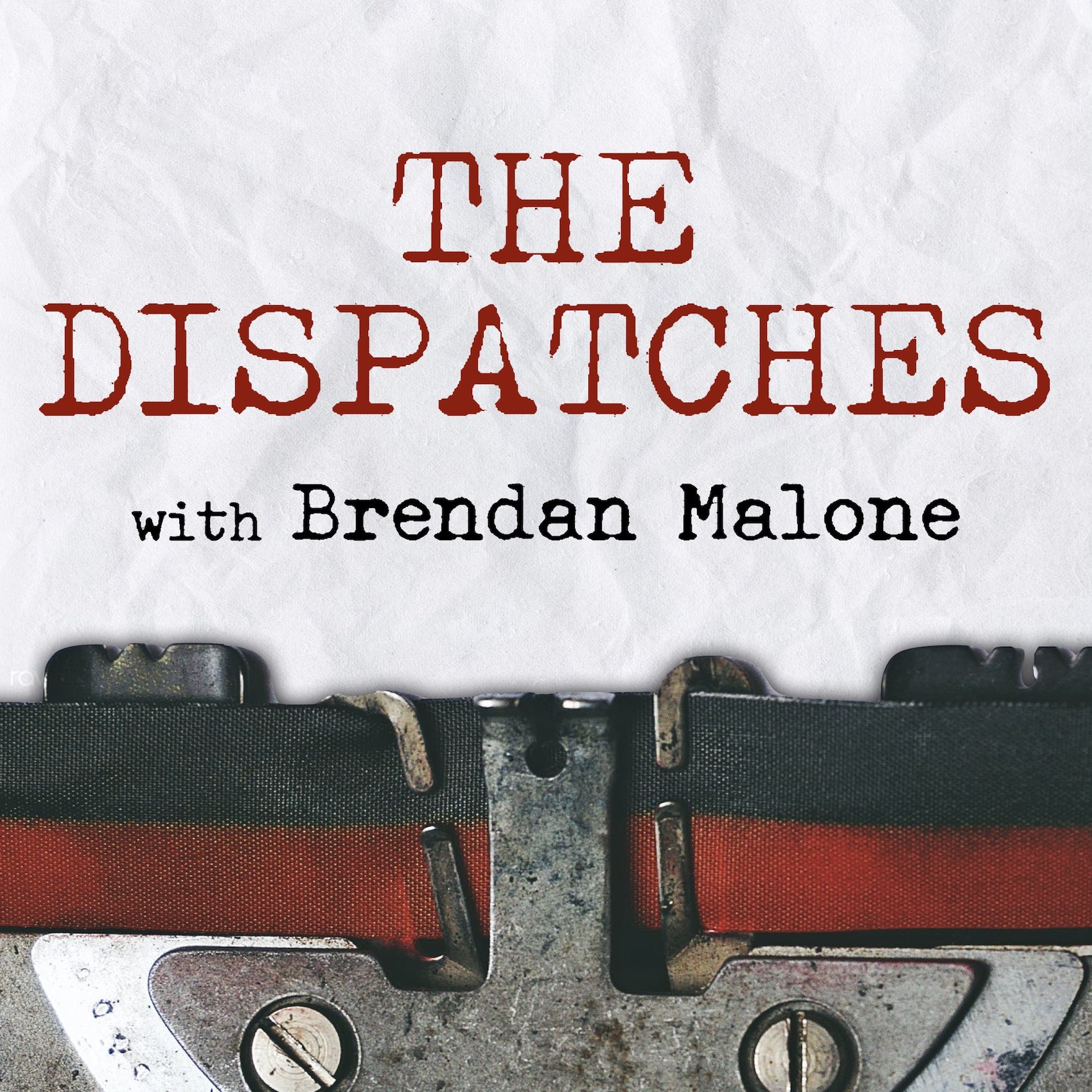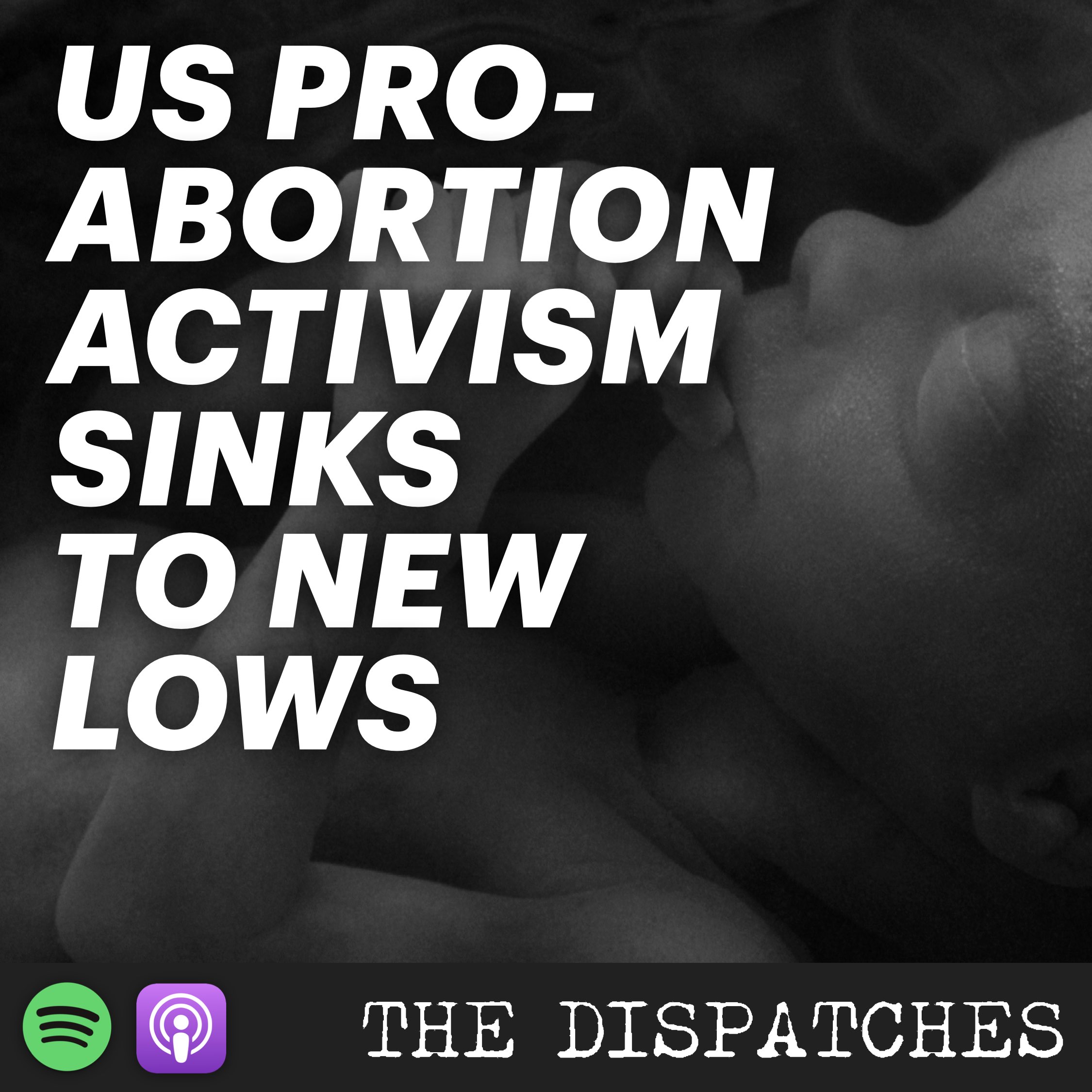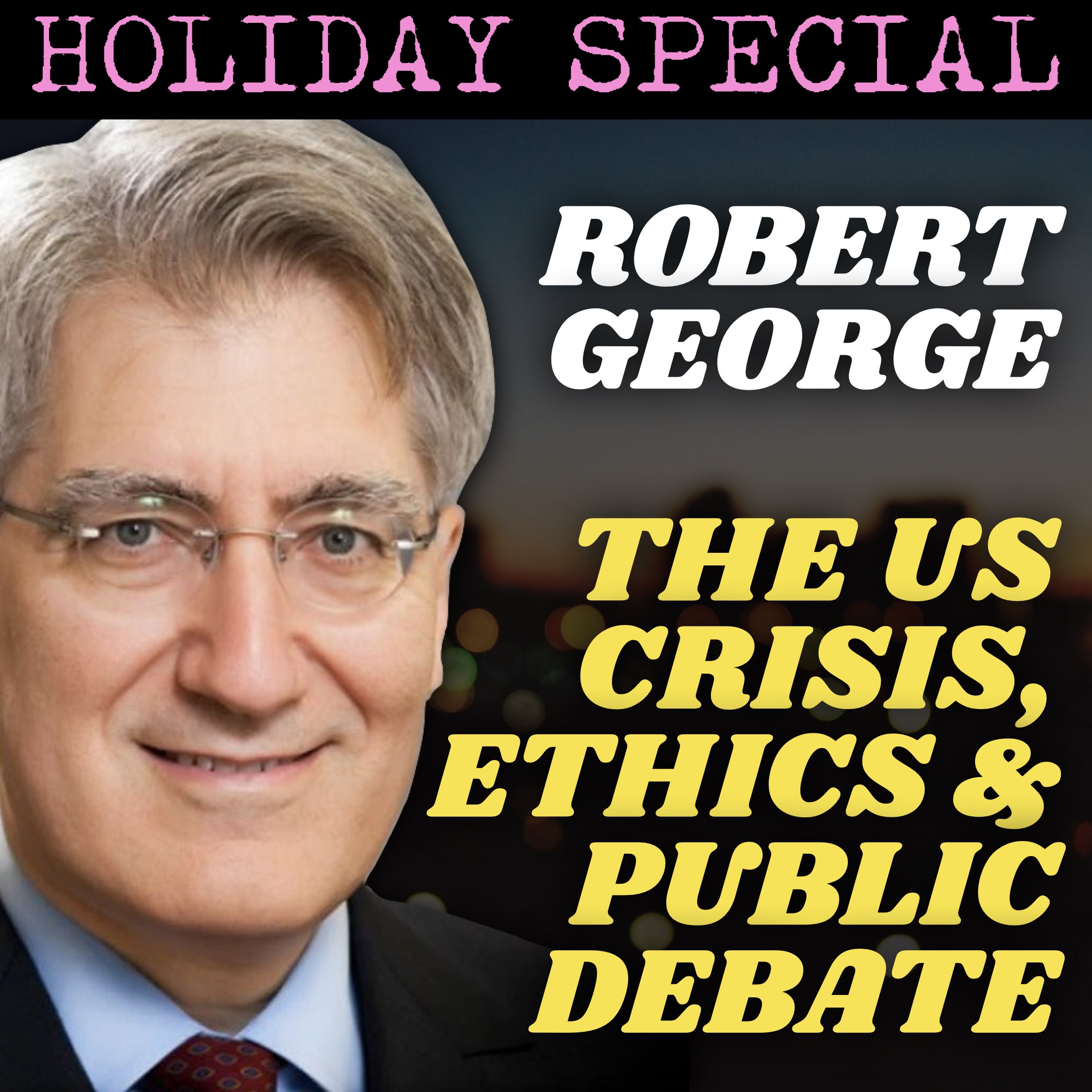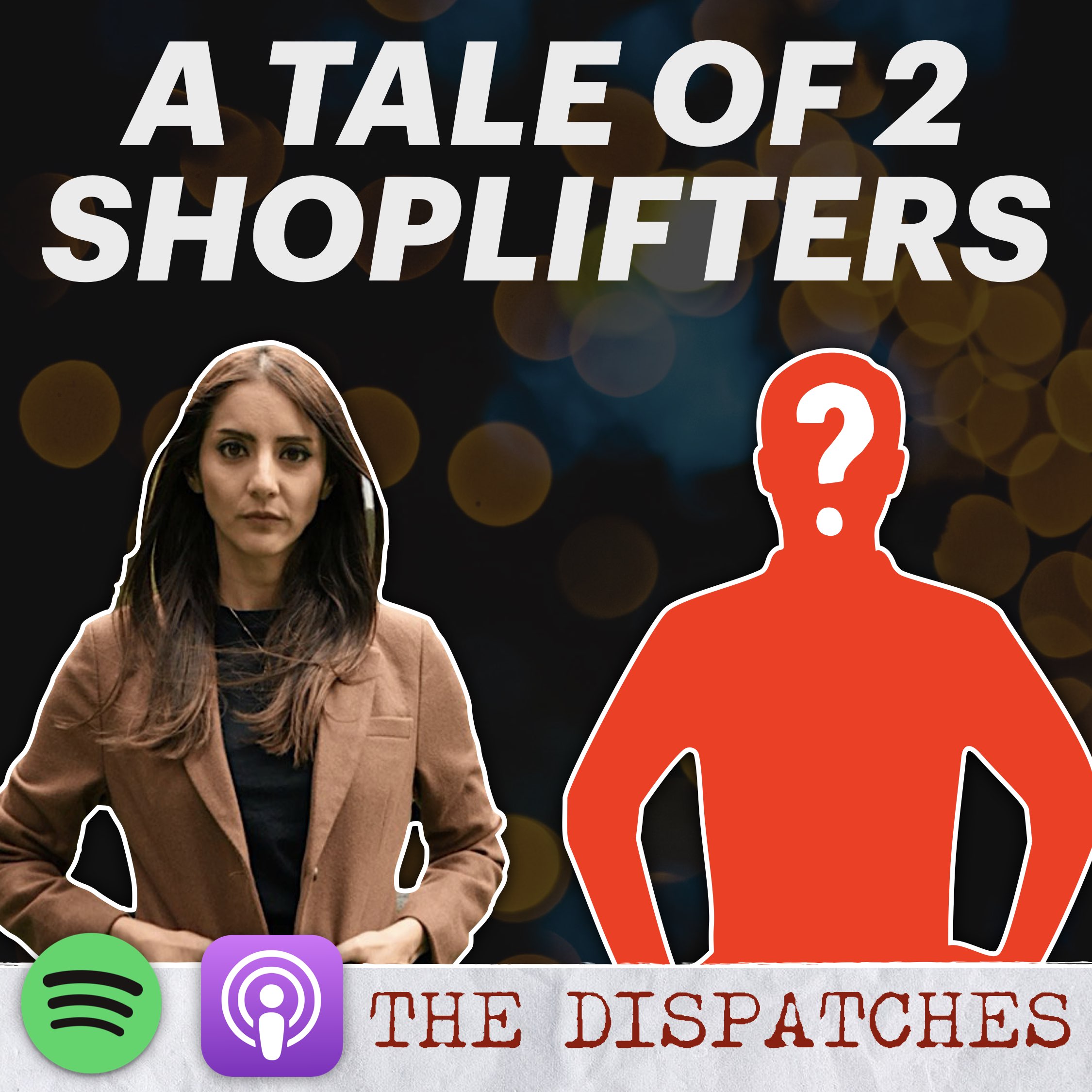[00:00:04] Hi, my name is Brendan Malone, and you're listening to the Dispatchers, the podcast that strives to cut through all the noise in order to challenge the popular narratives of the day with some good old fashioned contrarian thinking. You might not always agree, but at least you'll be taking a deeper look at the world around you.
[00:00:22] Hi everybody. Thanks for tuning into this episode of the Dispatchers. Today, I want to talk about the pandemic. No, not that pandemic. I want to talk about what I'm calling the pandemic of false dichotomies. When I look at the situation that we find ourselves in now, this global state of fear and uncertainty and confusion, and trying to figure out how the heck we're going to sort of get our way out of all of this mess. I think there's a bit of, what would I call it? Perhaps a cult of COVID that has arisen, and it's starting to do some troubling things to our basic skills of judgment and rationality, I think, and I don't want to cast too wide a net, because obviously not everyone is caught up in this. And I also don't want to sort of cast aspersions without putting my own hand up and saying, look, I'm guilty of this at times as well myself. We all are. We all have our psychological blind spots. We all fall into it. And one thing that we could all do with a lot more of right now is a heck of a lot more humility, because I think that would really help to tone things down a lot. But there's a certain, as I said, a pandemic of false dichotomies that has arisen, I think, where it's this real us versus them, this extreme binary, extreme black and white thinking, you're either with us or you're against us. And I want to talk about a really clear example that I saw of this on my own social media feeds over the last 24 hours or so. What happened was on Tuesday of this week, I posted a social media post about my concerns, expressing my concerns about this us versus them thinking. Let me read to you, for those who didn't see it, let me read to you the content of what I actually said. There is an alarming amount of this US versus them commentary now beginning to raise its ugly head in the media and on social media in this country, I should say. By the way, this quote here from my social media post, I was referring to a specific article. I posted a screenshot of one particular article, but there were several of them that I'd seen the last couple of days, which was this real sort of promotion of this idea that the unvaccinated are a danger and they're a threat to us and we need to start treating them differently as a result of this. So that's what I was referring to. Let me carry on. Sadly, I have even seen Christians espousing this sort of rhetoric, and alarmingly, sometimes even with great vitriol, although unintentional, the seeds for this dangerous development were sown when we inextricably married the team of 5 million jingoism to New Zealand COVID policies. Once that first thing was done, there was always going to be the risk of othering people who were deemed to be noncompliant or a threat to the wishes of the team. This is something we should all be extremely vigilant about. A lot of people seem unaware of the fact that mob dehumanization and its associated injustices traditionally does not begin with abusive epithets. They are the secondary fruits. It more commonly begins with the public promotion of a vision for societal health, which includes a derogatory categorization and vilification of individuals or groups who are deemed to pose some threat to the health of the nation. End quote. So that's what I posted, and I don't think that that is an irrational or unfair statement to make. We are absolutely seeing this now with the whole vaccination drive and the desperation to try and get ourselves out of this mess that we're in. That sort of people are clinging to vaccines as the panacea, and there's this great hope that we can find our way out of this through the vaccination route. And what's arisen alongside this now is this promotion and proclamation of a vision for the health of the nation. EffectiveLy, there's a sort of utopianism embroiled in all of this. And then on top of that, there is a categorization now that has quickly come on the heels of that of people who are deemed to be a threat to the health of the nation. And that is the unvaccinated. And it's more and more on social media and in media, we are seeing this notion being espoused. And as I said in my post, that's dangerous. It's very, very dangerous. Now here's the thing, though, in response to that post, which I think the rational response would be, if you disagreed with that post, would be to engage with the actual substance of what was said. But I saw several people who I know are good people and who are intelligent people who didn't do that. They instantly fell into false dichotomy. And so what they did was they started to accuse me of being antivax for that post. That post has nothing to do with vaccinations per se. It's about how we're talking about people who might have vaccine hesitancy or who are personally opposed to being vaccinated. This post has got nothing to do with saying, right, I'm Antivaxx and you're Antivaxx and we should all be antivaxxed together, which is what I was accused of supporting or nurturing or hiding underneath all of this content. That's nonsense. And it's a false dichotomy that causes people to think that way. By the way, for the record, I'm pro vax. I'm a person who has been vaccinated and regularly has had various booster shots when certain things have been an issue in our nation, and when a good solid vaccine option arrives in this country, which by the looks of things could be early next year, I will be lining up for that particular vaccine. I'm someone who's actually looked into this, done a bit of research, and has got a clear idea of what it is that I'm looking for in a vaccine. I'm going to do a future episode, by the way, on that specific point of why we need to respect freedom of conscience, because this isn't a simple binary. Should I or should I not get vaccine? Some people try to make it into this very simple binary, and that's unintelligent, that's lacking in proper nuance and it's just not sound. So I wanted a whole episode on that. But for the record, I am someone who's looking to get myself vaccinated in the coming months. So that accusation is just completely false. But people felt comfortable making it because we're in a pandemic, a false dichotomy, this whole us or them thinking you're either with me or you're against me. It's like, no, this is not about vaccinations, this is about something else altogether.
[00:06:57] And this is the danger, really, that I was highlighting in my post. And then around the post I also saw people engaging in some false equivalencies. And so I saw people comparing this us versus them othering of people who don't want to get vaccinated and treating them, or suggesting that they should be treated as second class citizens. There are even people suggesting they should be excluded from not just public life, but now even people are talking about the idea of excluding people from health care. It's pretty serious where this conversation is currently happening and where it's sort of the direction it's trending in. And some people in response to that, in their comments, were saying, well, I'm pro vaccine, I've been vaccinated and I've been accused of being a sheeple. And I don't think that should be happening either. I don't think anyone should be criticizing or attacking any other person for their vaccine decisions. They just shouldn't. In some ways, I wish we didn't have social media so we didn't know whether or not we were being vaccine. We could just sort of get on with it, make a rational decision and then just get on with it.
[00:07:59] So I don't think anyone should be called a sheeple for who's chosen to be vaccinated. I know really good people have done their research and good on them. I don't expect to be called a sheeple because I'm looking to get vaccinated in the coming months either. But here's the thing. I'm not sure that if someone was to call me a sheeple, that is equivalent to this sort of conversation that we're having right now about people who are not vaccinated and these notions around creating a utopian vision of the health of the nation and then saying that these people are a threat to that. I think that's on a very different sort of level. Calling someone a sheeple is effectively what you're doing. There is you're saying, oh, you're not thinking properly, mate. It's an accusation of effectively ignorance or stupidity. Now, it's not a charitable thing to be doing and we shouldn't be doing it, but I don't think that's on the same level at all as someone who is suggesting that we should be creating classes of people in our society and excluding one class of people, the unvaccinated, from key aspects, including employment, their ability to make a living. I mean, these are pretty serious conversations and I think it doesn't do them any sort of service, any rational or meaningful service, to make false equivalencies. And then the other thing I saw was I actually saw people that I know are good, intelligent people who were seeking to justify this Us versus them mob mentality around vaccination. And that I found probably one of the most astounding things of all. False dichotomies don't really surprise me anymore. I think thanks to social media and the fact that we rush and rush and rush and don't really listen to people, that it's not surprising that we'd get that false dichotomy stuff going on. But when I see people seeking to justify the US versus them or to downplay it or to say it's not really that big a deal, that is really, really troubling to me. And I think this is one of the things that I've learned throughout this whole pandemic process, is I've had an insight, and I'm not the only one. But for me, it's provided a fascinating and very frightening insight into how easy and how quickly a society can fall prey to these dangerous, very dangerous mob mentalities, and how easily and quickly we can fall prey to the seeds of totalitarianism and to the extremes of some pretty serious Sort of extremes that flow on from that. And I'm not saying that this is, again, anyone out there who's going, yeah, he's endorsing the not. I'm not endorsing that at all.
[00:10:33] But this, again, this is crazy. I even have to explain this, but for Pete's sake, this is the pandemic of false dichotomy that's causing me to have to stop right now and say to you, I'm not in that group, just because I'm telling you how frightening and how easy and how obvious it is that we are right now falling prey to a lot of those mentalities that open the pathway to totalitarianism.
[00:10:56] And by the way, also, this isn't about deifying personal autonomy here. That's not what this is about either. Again, another form of this sort of false dichotomy, this assumption that because I've made this statement that somehow that I'm a believer in sort of radical individualism, radical self autonomy, and this deification of Personal choice above all else, if you know me, anyone who knows me well, they'll know that's not how I think about the world at all. I have a Judeo Christian natural law vision of reality and human anthropology and morality and ethics, and that very much informs my thinking. And if you know anything about that, you will know that personal autonomy is not the ultimate good.
[00:11:37] Instead, what I am concerned about is respect for the dignity, the human dignity, of other human persons. Every person has profound human dignity, and that human dignity should be respected, and that includes respect for freedom of conscience. And this is very important. And this is an important part of our Judeo Christian Western ethic natural law tradition is around the whole notion of freedom of conscience. So a healthy autonomy arises out of a respect for human dignity and an understanding, a good, concrete, solid understanding of why freedom of conscience is so important. Personal conscience. And it also, in the mix, it always includes, there's always going to be a tension here around common good, respect for the common good. So it's not a radical individualism at all. It's a concept of the individual who exists in community. And so therefore the community must never ride roughshod over the individual. That's a problem. That's really collectivism at that point. And at the same time, the individual must never ride roughshod over the community. That's the sort of radical individualism in its various forms, a sort of a type of anarchy, if you like, that's happening. So that's what this really is all about. And the real danger here is that's what we're losing sight of. And I can see here there's just a lack of consistency. There is a lack of principled thinking here. So I'm seeing people, for example, who have been arch defenders of abortion, something that I would disagree with and consider to be gravely unethical and unjust. And I'm seeing people who have been arch defenders of abortion based on this principle of my body, my choice, who are now completely rejecting that principle when it comes to the question of vaccination. Now I'm going to disagree with them on the abortion point. But there's a deeper problem here when there's a lack of principled thinking. I've seen other people who just months ago were really hammering home the message about the need for. We need better formation and training for young people in sexual consent. So we need consent training. Now, I have a Judeo Christian vision of human sexuality, and I've got no problem with the concept of forming people in the concept of consent, because consent only really makes sense, I think, with human sexuality, if you have a vision of human sexuality as it being a truly sacred thing, and so what comes with that is a rejection of lust and objectification and using other people for your own gratification. Instead, they should always be received as gift, and you should always give of yourself sexually as gift to the other. It should be this mutual self giving as gift, not as object, that I take and use for myself. So consent makes sense in that framework. It's the only thing I think that really makes sense is sexual consent. That's not the issue. The issue is here that the same people who are just months ago were demanding an increase in formation and consent training in high schools are now saying, well, consent doesn't really matter when it comes to vaccination. Now, you can see the problem here. The problem here is a lack of principle and a lack of consistency. Now, I might disagree with you on a particular point, but there is still a certain rationality in consistency. A person who has a principle and they stick to that principle consistently is a person who is being more rational than a person who doesn't actually hold a principle. Or they hold it in one setting, and then they come to another setting and they completely abandon it, and they go completely 180 degrees in the exact opposite direction. And there's a certain rationality, as I said, in the consistency of holding to a principle. I might disagree with you say, on the abortion question, and I would make an argument why I think that you are wrong on that point. But I can still see there's a rationality. If you keep that same principle and you apply it consistently to all sorts of aspects and issues in this life and in that situation, we have a mutual foundation upon which we can begin to dialogue, because that principle is the foundation we both stand on. And then we can begin to dialogue about it and say, well, would it really apply in the way you're claiming when it comes to abortion, even if it might apply in other settings where it might be the correct thing to actually embrace? And so this lack of principled thinking is really troubling, because when you don't have consistent principles at play, that tells me you really do have a mob mentality at play, and it's not good. What you've got, what you're left with without principles, you're left with passions and pragmatism. So you're left with emotions and emotionalism, people making decisions not based on a principle, but on the emotion. And in this case, that emotion is fear, and it's a global state of fear. And it's driving so much of the thinking around this. And then this sort of pragmatism, this hard pragmatism that develops out of the passions and the fear and principle gets sidelined. And without that principle, we're in real trouble. So I think what we need to do is we need to go back and realign ourselves again and say, well, one of the first and most important principles in all of this must be respect for human dignity. If we're locking ourselves down and going to these very extreme measures to shut down a society, we're not doing that for giggles. We're doing that because we're claiming that this should be done out of a respect for the vulnerable members of our community. Right. It's out of respect for the human dignity of others that I limit my behavior. Well, that principle should remain consistent, and it should be applied when we think about the way we talk about and the way we think about people who are going to make different vaccine choices to us, that's the consistent position. Stop the false dichotomy. Stop assuming that just because someone says that we should be consistent and we should regard human dignity and hold that up as give that Primacy in this situation, that somehow that means that they're antivaxx or they're a lunatic or a conspiracy theorist, you're not thinking and acting rationally. And so I think we need to recover that the only way to find ourselves out of a pandemic of false dichotomies and a pandemic of irrational thinking in this cult of COVID there's no vaccine for that. We've actually just got to stop, I think probably, and embrace a little bit more humility and be willing to think a bit more deeply, to listen more and perhaps to speak a little bit less, and to really engage with people in genuine dialogue rather than rushing off to sort of pass, to pass some sort of irrational and poorly thought out judgment about them. Thanks for tuning into this episode. I will see you next time on the Dispatchers.
[00:18:09] The Dispatchers podcast is a production of Left Foot media. If you enjoyed this show, then please help us to ensure that more of this great content keeps getting made by becoming a patron of our
[email protected].
[00:18:22] Left foot media link in the show notes thanks for listening. See you next time on the dispatches.





